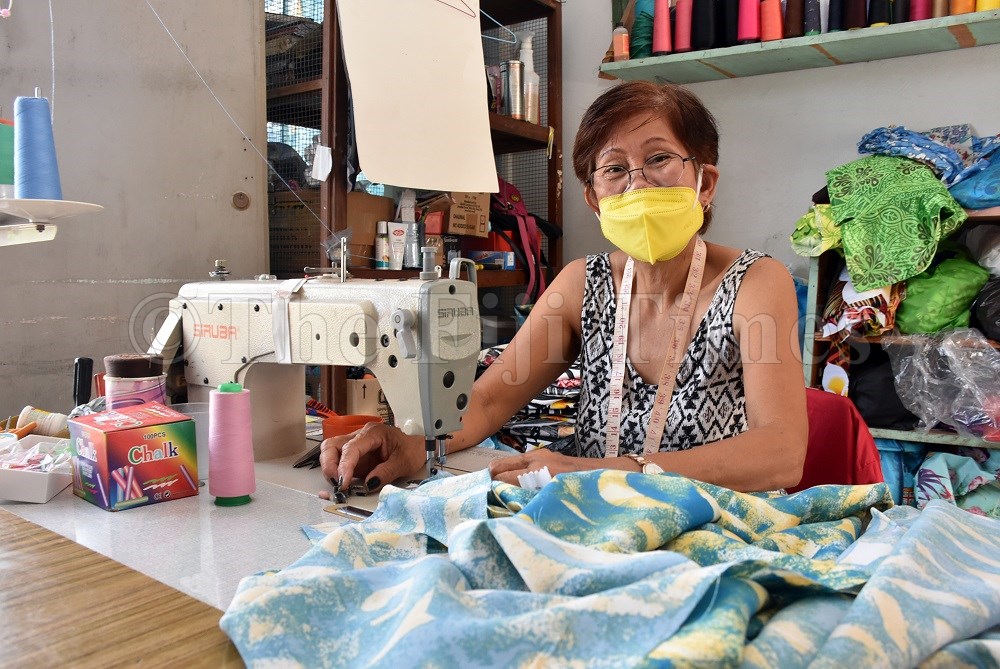The migration of people from the Philippines to Fiji is an interesting tale that is yet to be told in its entirety.
And just like the unique contribution of the Girmitiya to Fiji, Filipinos have travelled to the country over many years, many deciding to make Fiji their home – some by choice and others as victims of circumstance.
Lautoka City boasts a small but very active Filipino population and they all have interesting stories to share.
Renowned Lautoka tailor Maria Escarrilia shared about how she left her province of Bulacan outside Manila, the Philippine capital, to travel to Fiji in search of a better life more than two decades ago.
It was 1993 and she was nursing her two youngest children when she was told to travel to Fiji to work at the then Ghim Li Garment factory in Lautoka.
“There were no proper documents except a few papers to sign and the trip to Fiji was all booked,” Ms Escarrilia said.
“Before leaving Manila, I was scared. There were nine of us and the word was going around that we were travelling to a country full of people who were known for cannibalism.
“All kinds of thoughts came to me, I am leaving behind two young children and I am leaving my country for the first time to a place far away from home and a place I do not know at all.”
Ms Escarrilia and her fellow countrymen started work a day after arriving in Fiji and she discovered straight away that the country was full of friendly people who cared about their welfare.
The 62-year-old tailor said she fell in love with Fiji ever since the day she started working and there was no looking back for her especially when she sent money to family who were supporting her two children in Bulacan in the Philippines.
“Fiji, and Lautoka especially, was totally different from what I had heard before I left.
“People were so friendly and in the mornings and afternoons, I saw people going to church.
“I fell in love with Fiji in the first year I spent here and the money I sent back home was able to support my family and children for some years before I renewed my contract and decided to bring them to Fiji to be with me.”
Some years after she began work, the garment factory shut down and Ms Escarrilia was left without work.
She said she could not afford to remain idle because her family in the Philippines were relying on her. She decided to start a food business from her Simla home.
Ms Escarrilia was a familiar sight as she walked up to the Lautoka Hospital where she would sell roti parcels and other food packs.
She was able to establish good relationships with hospital workers and residents she met almost every day.
A little while later, she joined a hair salon in town where she operated a manicure and pedicure business.
“But I have always had a love for tailoring and I was a machinist by profession so the savings I got from the two small businesses allowed me to buy a new sewing machine.
“By that time, I had moved to Natokowaqa and started my business from there.
“Word spread about my work and my neighbours and other women from around Lautoka brought their material to my home to be sewn.”
That was the beginning of lasting partnerships Ms Escarrilia established with hundreds of clients from Lautoka to Nadi.
Today, she owns and operates her tailoring business – Joana’s Fashion – from a small rented premises on Tukani St in the Sugar City.
Maria, as she is fondly known to the hundreds of women who visit her when they need their sulu and jamba or family kalavata sewn for a particular function, said business was all about relationships.
She said some people had been doing business with her for many years and their relationship was only cut off when the COVID-19 pandemic hit Fiji.
The pandemic hit Maria’s business so hard that she had to let go of some clients from the aviation and tourism industries.
But she did not give up. She continued taking orders from other customers and that kept the business going.
“As a tailor, I always make sure I sew the best product and this leaves a lasting impression on my customers.
“I have been sewing family orders for many years and they keep coming back.
“I believe the most important thing is to provide the best product and no order is big or small, I treat every order with the same respect and would make sure customers return satisfied when they do business with me.”
Maria said the tailoring business had its ups and downs but for her, personally, every small thing was about faith, commitment and love.
“I always make sure I have faith in God because this business is not easy.
“Sometimes clients request for patterns I have never sewn so I ask God to give me the knowledge and the wisdom to be able to do a good job with the order.
“God is indeed good all the time and without him I would not have been able to establish a good business relationship with the people of the West.”
- Next week: Esther’s journey from the Philippines and falling in love with a Lautoka man.

